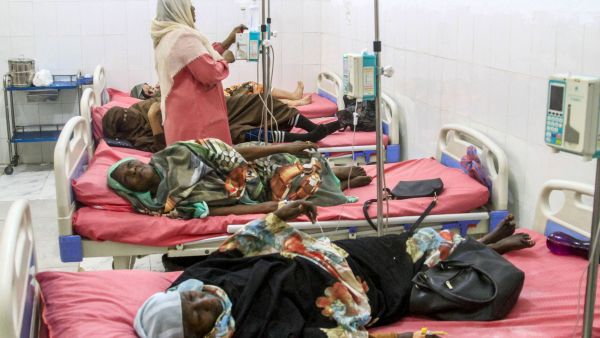ALBAWABA - Sudan's conflict has ravaged towns and cities across the nation, pushing the healthcare system to the brink of collapse, while cholera and dengue fever cases are on the rise and hunger levels remain "above the famine threshold," humanitarians warn.
The UN Humanitarian Coordination Office, OCHA, reported more than 28,000 cases of cholera and 836 fatalities in 11 states between July 22 and October 28.
According to OCHA, the real number of people infected with the disease might be greater due to under-reporting; the UN agency also warned in its most recent emergency report that dengue fever infections have continued to rise.
Sudan's dengue fever outbreak has been most severe in Kassala and Khartoum. As of October 28, 4,544 cases and 12 fatalities from dengue had been documented, with Kassala accounting for more than half of them.
The Ministry of Health reported a fresh cholera epidemic on August 12, which began on July 22, leading Sudanese health officials and humanitarian groups to respond again. A vaccine effort began in October intends to immunize around 1.4 million people in the most hit states.
Citing NGO Médecins Sans Frontières (MSF), OCHA reported "This has delayed or prevented the delivery of commercial and humanitarian supplies to areas of acute need,".
"Acute malnutrition rates remain above the Famine (IPC Phase 5) threshold in Zamzam internally displaced persons camp" MSF reported, referencing the UN-backed Integrated Food Security Phase Classification (IPC) initiative.
Sudan's healthcare system is still overburdened, with several hospitals barely working or entirely closed due to supply and fuel shortages. According to the WHO, up to 80% of health institutions in war zones, including Al Jazirah, Kordofan, Darfur, and Khartoum, are either barely operational or closed.







